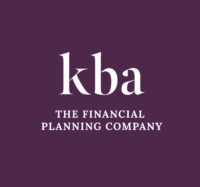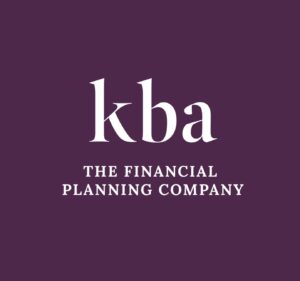It’s normal for prices to increase gradually over time. But today, the price of everything is soaring and the cost of living crisis is hitting millions of Brits.
Inflation is currently at a 40-year high of 9.4% and the Bank of England (BoE) has warned that it could rise above 11% later in the year.
Faced with rising prices and bills, many are looking at how to navigate the rising costs and the effect on their household finances.
So, whatever your circumstances, here are seven useful suggestions to help you stay on top.
1. Revisit your budget
Reviewing your finances and household budget is the crucial first step for dealing with the increased cost of living.
This will give you a clear picture of your finances and help you understand exactly how much money you have to work with each month.
Review all your outgoings, including:
- Income – wages, bonuses, pension, or any extra benefits you receive
- Essential spending – mortgage or rent payments, bills, travel expenses, food, and childcare
- Debt – regular repayments you make for loans, credit cards, and overdrafts
- Savings and investments – money you pay into savings account, ISA, or investment portfolio
- Non-essential spending – meals out, socialising, holidays, hobbies, and leisure activities.
Generally, an ideal budget would see 50% of your income allocated to essential spending, 30% allocated to non-essentials, and 20% on savings or paying off debt.
2. Review non-essential spending
Next, take another look at your non-essential, or discretionary spending. You may be spending on “luxuries” that you might feel you no longer strictly need or could manage without, if necessary.
For example, how many streaming services are you paying for right now? Cancelling direct debits for services you no longer get value from is one of the quickest ways to save money.
3. Switch your savings
We always recommend that you keep an emergency fund in an easy access savings account.
Since a high inflation rate can negatively impact your savings over time – because the money in your account generally won’t go as far – it’s wise to be strategic with your savings.
Inertia is the biggest reason people fail to change their bank accounts. But when it comes to your savings, it’s a good idea to make sure you’re getting the best possible rate. Even if you’re unlikely to be able to find an interest rate good enough to match inflation – every little helps.
4. Consolidate debt
If you’ve got multiple debts that you’re working hard to repay, you could consider consolidating the debt.
Credit card debt, in particular, can feel like an uphill struggle. This is because of the high rates of interest credit cards usually carry.
A suitable 0% credit card transfer deal, might allow you to transfer all your debt to a new card and save on interest payments for a period. Depending on the length of the 0% offer, you might find that you can pay off the debt faster and be credit card debt free before the 0% period ends.
Before you commit to consolidating your debt, do the sums to make sure you’ll actually end up saving money. Check out the small print. Find out what interest rate you may be charged, should you still have remaining debt once the 0% period ends. And don’t forget to check for fees and charges, too.
5. Fix your mortgage
Mortgage savings can make a massive difference to your monthly outgoings.
In June 2022, the BoE raised interest rates for the fifth consecutive time to cool soaring inflation. The Bank increased the base rate by 0.25%, taking it to 1.25%, an increase that is likely to have affected to more than 850,000 homeowners almost immediately.
If you have a tracker or variable rate mortgage, your mortgage will increase with the full base rate. Typically, this increase will happen within a month.
A 0.25% increase in the base rate will add around £40 a month to a £300,000 mortgage with a 25-year term – equivalent to £480 a year.
For a loan of £400,000, borrowers will pay an extra £48 a month, or £576 a year.
If you have debt, depending on your circumstances, you may find that a remortgage could also help reduce your monthly outgoings to a more manageable level.
Should you want to explore your options, get in touch. Our specialist mortgage advisers have years of experience helping people find the right mortgage for them. Our relationships with a wide range of lenders means we can access excellent deals and rates, too.
6. Check your investments are inflation-proofed
In the long term, investing tends to provide positive returns that outpace inflation. In fact, the investment platform IG reports that, between 1984 and 2019, the FTSE 100 gave an annual total return of 7.8% with dividends reinvested, not accounting for fees and charges.
It is worth keeping in mind, however, that past performance is not a reliable indicator of future returns, so if you need help building a portfolio of investments you should get in touch with a financial planner.
7. Speak to your financial planner
For the best chance of protecting your wealth and finances against inflation, talk to a financial planner. They will have a deep understanding of the problems you face. They will take a holistic look at your circumstance and explain the different ways you could help mitigate the issues.
Get in touch
If you’re concerned about the rising cost of living and want help to protect your financial health, get in touch. Email us at contactme@kbafinancial.com or call us on 01942 889 883.
Please note:
The value of your investments (and any income from them) can go down as well as up and you may not get back the full amount you invested. Past performance is not a reliable indicator of future performance. Investments should be considered over the longer term and should fit in with your overall attitude to risk and financial circumstances.
HM Revenue and Customs practice and the law relating to taxation are complex and subject to individual circumstances and changes which cannot be foreseen.
Your property may be repossessed if you do not keep up repayments on your mortgage.



